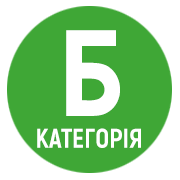METHODS OF FORMING SPEECH COMPETENCE IN JUNIOR STUDENTS
DOI:
https://doi.org/10.32689/maup.philol.2023.1.8Keywords:
innovative technologies, communicative task, language competence, principles of realization of language experience, formation of students’ language skills.Abstract
The article is devoted to the study of the formation of speech competence in junior students. The relevance of the study is due to the lack of a purposeful, holistic, phased process of teaching speech activity as a subsystem of vocational education. The aim of the study is to theoretically substantiate the organizational, pedagogical and methodological conditions for the formation of junior students’ speech skills in the process of studying humanities. To achieve this goal, such research methods as modeling, analysis, synthesis were used, which allowed to develop a model of students’ language skills development, to substantiate the conditions and methods of developing junior students’ language skills. The novelty of the study lies in the fact that for the first time the formation of language competence in junior students is considered. The conclusions indicate that the formation of a student’s universal communicative competence is a complex process in which he or she must master a whole set of competencies. The author emphasize that the model of pedagogical support for the practice of developing speech experience includes a system of interrelated components such as: goal, basic ideas, principles of implementation, stages of implementation, performance criteria and result. According to the author of the article, when forming communicative tasks, it is important to create cases using material that reflects real life and at the same time mobilizes the imagination of students. Since cases are an accurate model of real communication, the tasks retain the main features of typical communication and simultaneously represent a variety of situations, but are always motivated and relevant. The article proposes to use innovative technologies in the classroom for the purpose of forming speech competence, among which sketches, role-playing games and discussions are highlighted.
References
Безкоровайна Л. С., Штиленко О. Л. Про деякі особливості взаємодії викладача та іноземних студентів під час оволодіння останніми комунікативними навичками початкового рівня. Міжнародний науково-методичний семінар «Новітні педагогічні технології у викладанні мов іноземним студентам»: матеріали семінару, м. Харків, 20 лютого 2020 року. Харків: ХНАДУ, 2020. С. 15–18.
Вовк О. І. Комунікативно-когнітивна компетентність майбутніх філологів: нова парадигма сучасної освіти. Черкаси: Видавець Чабаненко Ю. А., 2013. 500 с.
Лях Т. Комунікативний метод у професійно-орієнтованому підході до навчання української мови іноземних студентів медичних спеціальностей. Studia ukrainica posnaniensia, 2021. Вип. 9 / 2, С. 25–36.
Омельчук С. А. Методика навчання морфології української мови в основній школі на засадах дослідницького підходу: дис. док. пед. наук: 13.00.02. Херсон, 2014. 537 с.
Соловйова В. Когнітивно-комунікативний підхід у системі лінгводидактичної підготовки студента-словесника. Філологічна освіта: компетентнісна парадигма: матеріали Міжнародної науково-практичної заочної інтернет-конференції (15 листопада 2019 р.). Миколаїв: МНУ імені В. О. Сухомлинського, 2019. С. 164–166.
Трошина С. В. Комунікативний підхід у викладанні української мови за професійним спрямуванням. Національна ідентичність в мові і культурі: збірник наукових праць / за заг. ред. О. Г. Шостак. К.: Талком, 2021. С. 202–205.
Call K. Professional Teaching Standards: A Comparative Analysis of Their History, Implementation and Efficacy. Australian Journal of Teacher Education. 2018. № 43(3). Pp. 48−93.
Chamot A. U. & O’Malley J. M. The CALLA handbook: Implementing the Cognitive Academic Language Learning Approach. URL: http://mtweb.mtsu.edu/eslep/eslcalla.htm
Korthagen F. A. J. Pedagogy of Teacher Education. In J. Loughran, M. L. Hamilton (Eds.), International Handbook of Teacher Education. 2016. Pp. 311−346.






